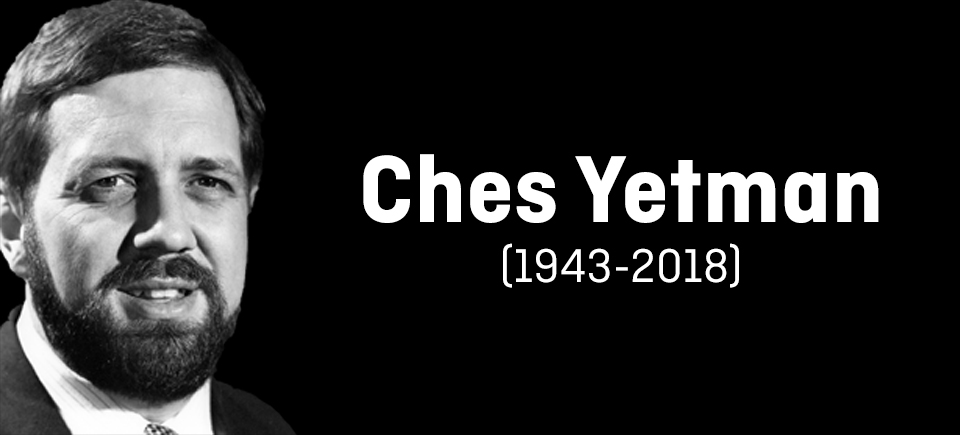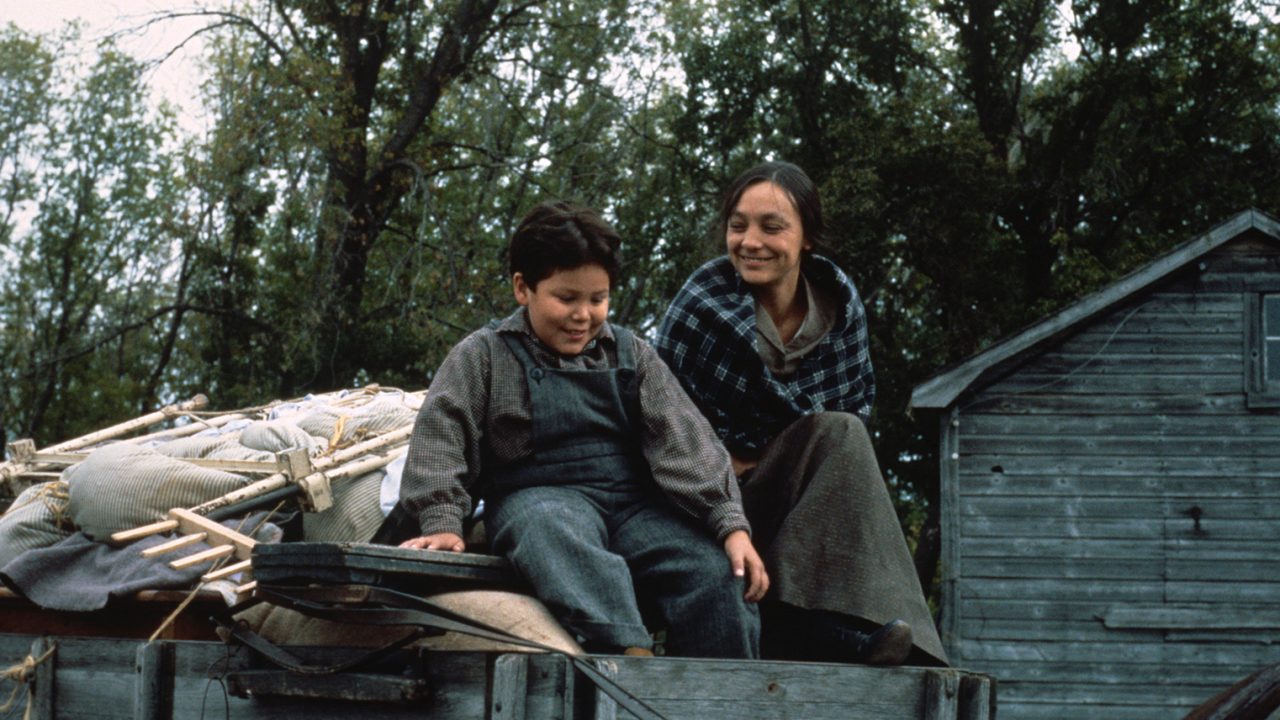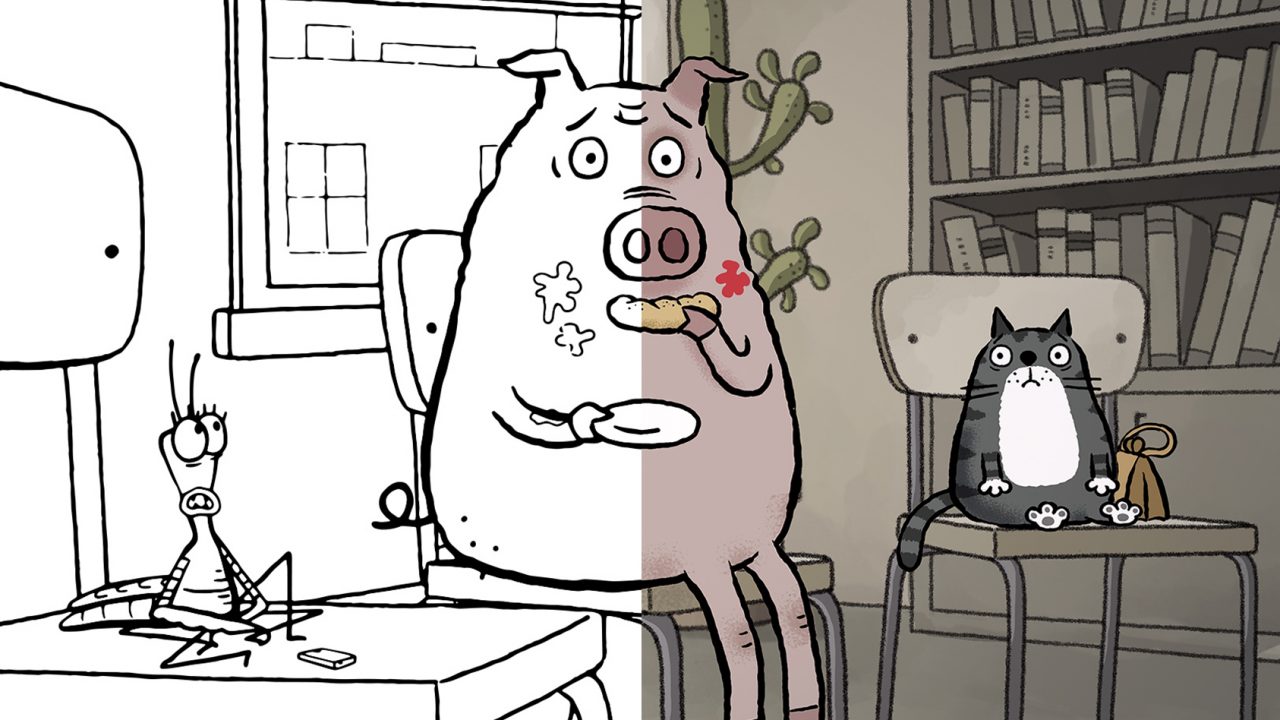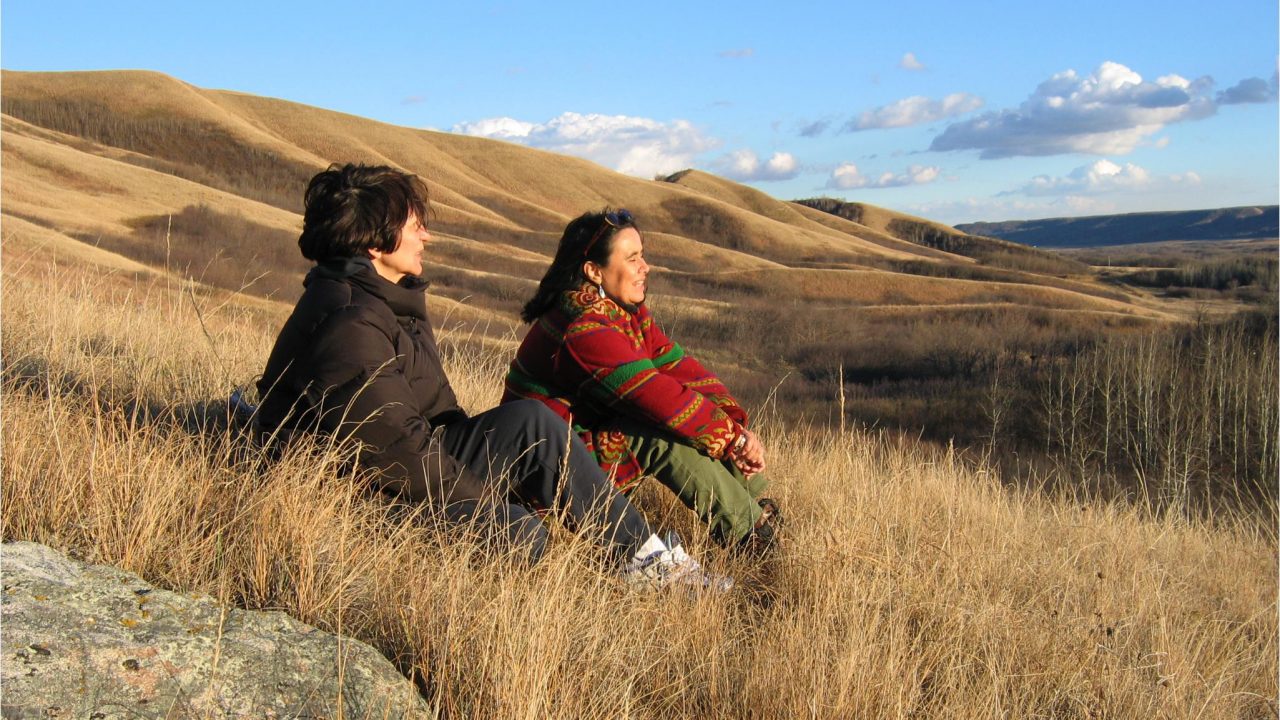
In Memoriam: Ches Yetman (1943-2018)
In Memoriam: Ches Yetman (1943-2018)
The National Film Board of Canada is a 78-year-old institution that is respected and revered around the world. But it is nothing without the people who work there.
We lost one of those people yesterday, former Executive Producer of the Prairie Production Centre (currently known as the North West Studio), Ches Yetman. Ches started his career with the Film Board as a distribution officer in the Maritimes in 1965, and over the years held several different positions in different offices across the country. In Montreal, he worked closely with some of the giants like Brittain and Daly, before heading out to Winnipeg to settle there.
At first, Yetman was in charge of promotion for the Board, and it’s thanks to his initiative that the NFB logo and films started appearing on mugs, bags, postcards and pens. The man understood merchandising. It was under his watch that the NFB Boutique was born. But in 1985, when Michael Scott left his position of Executive Producer from that studio, it was Yetman who stepped into the role. Despite having zero producing experience, he dove right into the world of animation – with one of his first projects being Cordell Barker’s The Cat Came Back.
As Executive Producer of the studio, Yetman also had documentary films on his slate. As such, he worked on projects like Fat Chance, The Defender, and Tommy Douglas: Keeper of the Flame. He was the kind of man people enjoyed working with. He loved what he did, and it showed in his work. This became even more clear in speaking to those who knew him. According to cinematographer Kent Nason, Yetman was the reason he joined the Board in the first place.
“When I was in high school, I had a keen interest in art and photography. Recognizing that, Ches (as distribution rep) was always introducing us to new NFB films from the past and present. I was certainly inspired by them, and by Ches’ boundless enthusiasm. When I [later] had the opportunity to join the “Board” I jumped at the chance, and Ches gave me the confidence to try.”
It’s not uncommon for us to watch and enjoy films with little notion of who’s behind them. So in an effort to change that, and honour Ches’ memory, we’ve put together a small selection of films that he produced.
The Cat Came Back
The film is a masterpiece. It’s one of the gems in our collection that just keeps going and going. And this past year, the film had new life breathed into it with the release of the accompanying picture book. Now consider that the movie was produced near the beginning of Ches’ career. Pretty remarkable, no?
The Cat Came Back, Cordell Barker, provided by the National Film Board of Canada
The Defender
This film was a 6-year production that began in 1982, with the film being released in 1988. The entire project was sparked by an article director Stephen Low in the paper about a man who was trying to build a fighter jet to sell to the army. Sounds crazy, which is probably why it caught his eye. And what a good eye that was, because what resulted is one of those films you just have to see to believe.
The Defender, Stephen Low, provided by the National Film Board of Canada
The Apprentice
Returning to his roots in animation, Yetman produced this bizarre little film from Richard Condie, a man known for his bizarre little films. What luck Yetman had to be in Winnipeg, a veritable hotbed of talented animators. This short follows the story of a young fool who meets an old fool at a crossroads and learns the consequences of taking the wrong path.
The Apprentice, Richard Condie, provided by the National Film Board of Canada
Places Not Our Own
This was the first film Yetman executive produced and it was part of series that depicted how Canada’s West was gradually taken over by the railroads and new settlers, forcing out the Metis population and sentencing them to a harsh life as a forgotten people. This is the story of Rose, a woman seeking to provide for her family, despite the odds.
Places Not Our Own , Derek Mazur, provided by the National Film Board of Canada
The Crown Prince
One of the things the Film Board is known for is the ways in which its films have helped Canadians, and people around the world, get a better understanding of the issues. This film is no exception. In fact, after my daughter was born I had a bit of a rough time, and the doctor I saw, upon learning that I worked for the NFB, said, “Can you get me a copy of The Crown Prince? I use it with all my abuse patients, and I’ve worn my copy out.” This is a short film that tackles some really complex issues, and the fact that it’s still relevant so many years later only serves to show what an outstanding job they did with the material.
The Crown Prince, Aaron Kim Johnston, provided by the National Film Board of Canada




I grew up in St. John’s about three houses away from where Ches’ family lived. We were two little boys who lived on the same side of the street, went to the same schools, and were friends into our teens. Then our lives drifted apart, but I followed his career with much pleasure. My favourite work of his was an op-ed he wrote that was published in the Globe and Mail entitled ‘Rough Side Out’. As he explained it, Newfoundlanders discovered that paint stuck better to the rough side of clapboard so they put the clapboard on their house ‘rough side out’. He saw it as a metaphor for Newfoundlanders more generally and wrote eloquently. Alan Doyle (Great Big Sea) has also used this metaphor in his recent autobiography describing his early life in Newfoundland. I have had no contact with Ches for decades, but we were born in the same year, in the same place, on the same side of the street – that shapes you, whether you are rough side out or not.
Ralph Matthews, Ph.D., Vancouver
Sad to hear of Chet’s passing. He was kind, insightful and with a unique and gentle sense of humor. His generous counsel on filmmaking is fondly remembered to this day. When I got a bad review he said, “Be happy — ink is ink!”
I met this man around 1976 when he and his family moved next door to me in the little country town of Godmanchester,QC. Little did I know at the time what an impact he and his family would have on the rest of my life. Ches Yetman is the reason I love the Beatles, John Denver, Carole King, watching movies outside,loving VW Beetles,and growing up beside this intelligent, cool, gentle kind, mountain man. His infectious hearty laugh will forever ring in my memory.
In 1985 I walked through the front door of the NFB at 360 Main street in Winnipeg. It was Ches who greeted me. I showed him a super 8 short I had made. He loved it and gave me a camera and film stock and said make another one. I did. Ches put me in touch with John Paskievich. So many opportunities happened because of him. He was easy to be around, always welcoming, supportive and would listen with patience to most anything you had to say. He was also very funny and told me side splitting stories about his time growing up in NFLD and his adventures when he worked as a repo man.
Hats off Ches. Jeff
I am so sorry to hear this news. Ches was a powerful influence in my formative years in this industry and I will always remeber him for his boundless enthusiasm and positive energy. I will have to dig out my “Big Snit” pen and wiggle the eyes in a moment of remembrance.
Such sad news. Ches always had such a happy manner around the NFB. Those were golden years for me, and he made it a lot easier for a reclusive type like myself to fit in. Thanks Ches.
Had many a good ‘knock em down’ cultural political debates/arguments with Ches in Saskatoon. He had a passion for the NFB and for it’s role in Canadian cinema. RIP Ches